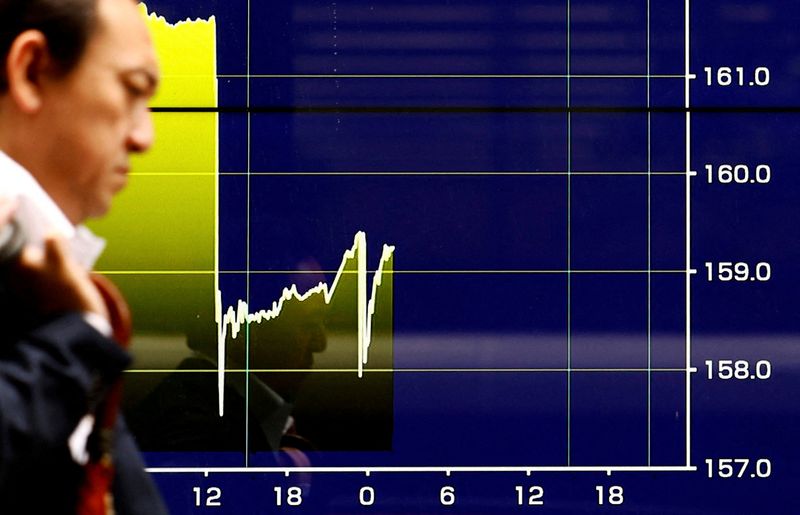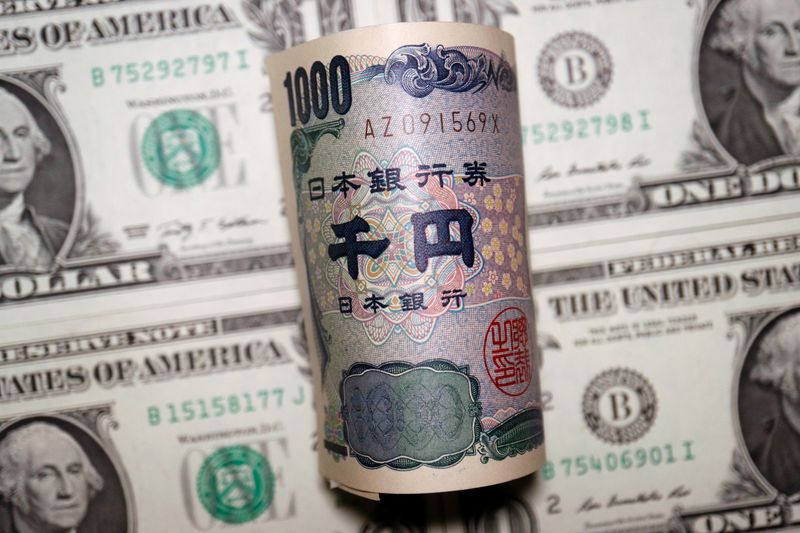By Summer Zhen
HONG KONG (Reuters) – Global hedge funds have retreated en masse from their bearish bets on the Japanese yen amid the currency’s surge against the U.S. dollar over the past two weeks, according to a UBS note to clients seen by Reuters on Tuesday. has seen.
Hedge funds covered almost all short yen positions built up over the past year, with the yen rising about 5% against the U.S. dollar since July 10, UBS said in a note on Monday, citing internal forex flow data without the figures to announce. .
A suspected nearly $40 billion intervention by Japanese authorities has pushed the yen from around 162 per dollar in mid-July to roughly 153 per dollar.
“I think the Bank of Japan’s goal is to convince investors not to bet against them and push the market to deleverage,” said Zhiwei Zhang, president of hedge fund Pinpoint Asset Management.
The yen’s trend reversal also disrupted popular carry trades, in which an investor borrows in a currency with a low interest rate and invests in a currency with a higher interest rate.
The yen was the most popular financing currency, as Japan has the lowest interest rates among the G10 currencies. Analysts say investors should look for alternatives now that the yen has become too volatile.
The Japanese central bank has started a two-day policy meeting that ends on Wednesday. Market traders have been cautious this week ahead of upcoming interest rate decisions and details of the plan to gradually withdraw from massive government bond purchases.

However, not everyone is convinced by the BOJ’s intervention, and opinions on the yen’s future direction are increasingly divergent.
In contrast to the hedge fund retreat, the real money community, or traditional long-only asset managers, “has used the yen’s recent rally as an opportunity to continue selling the currency,” UBS said in the same note.


